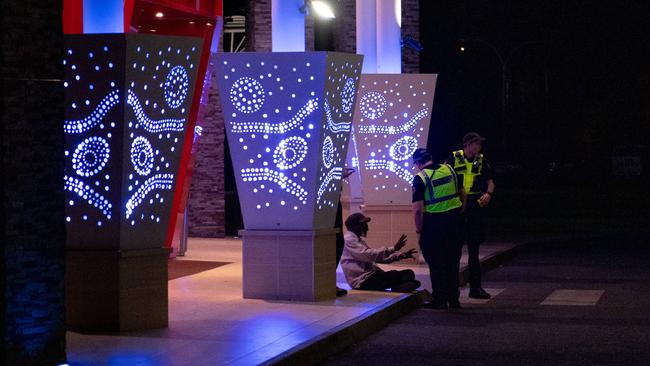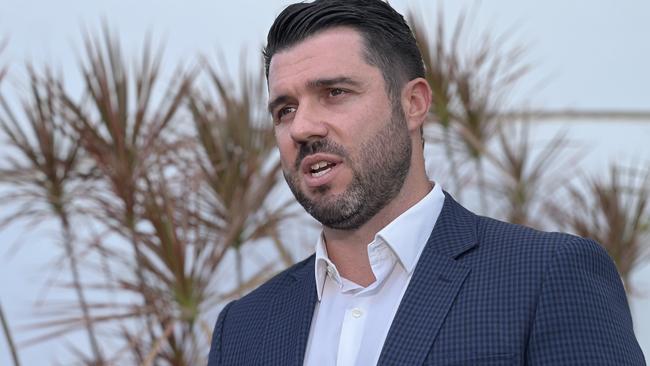Anti-discrimination commission labels NT curfew legislation an ‘affront to the law’
The NT’s anti-discrimination watchdog has labelled moves to make it easier to impose curfews an ‘affront to the rule of law’ that ‘promotes arbitrary use of power’.

Northern Territory
Don't miss out on the headlines from Northern Territory. Followed categories will be added to My News.
The Northern Territory’s Anti-Discrimination Commissioner has condemned moves to make it easier to impose curfews as reactive, promoting ‘arbitrary use of power’, and an ‘affront to the rule of law’.
Expected to be made into law this week, the curfew reforms will allow the Police Commissioner to make a public disorder declaration if they deem a “serious risk to public safety”.
These declarations can be for up to 72 hours, and can be extended by the minister for a further seven days.
The Bill removes requirements for the Police Commissioner to consider or be bound by the Anti-Discrimination Act – something the anti-discrimination watchdog warned carried “the very real possibility of profiling and targeting groups or people that (the Act) is explicitly designed to protect”.

“It is our view that ‘serious risk to public safety’ required by the Bill is a low threshold to
exercise such discretion which impedes on people’s freedom of movement, particularly
considering the vague and limited safeguards proposed,” Commissioner Jeswynn Yogaratnam said.
“The Police Commissioner is required to prepare a report to the Northern Territory Ombudsman providing details on the declaration, however, only after the fact and within three months of the expiry of the declaration.
“There is no provision for consultation with, or oversight from, the Ombudsman, or any other safeguarding body, prior to invoking the power.
“The power which will be permitted under this Bill is not in line with the spirit of the positive duty to eliminate discrimination to the greatest extent possible.”

Police Minister Brent Potter defended the reforms.
“Yes, it goes around and will basically remove the Anti-Discrimination (Act) if we are to bring in a curfew,” he said.
“But there are certain things that are protected, cultural activities are protected.
“Let’s be really clear, we’ll only use a curfew when there is a significant risk to public safety.
“We need this legislation as a tool for police in the event that we see something like the Todd Tavern event happen.
“It was this Labor government that brought in anti-discrimination (amendments in 2022), it is those opposite that didn’t support it, and said they will repeal it.”

Northern Territory Children’s Commissioner Shahleena Musk said the “extraordinary new powers” lacked appropriate safeguards.
“I am deeply concerned this legislation increases the likelihood of declarations that will target
and harm vulnerable and marginalised groups, such as Aboriginal children and young people,” she said.
“Rushing through laws that could lead to unequal restrictions on certain groups and increased
contact with police can have devastating consequences.
“I have not been consulted prior to the introduction of this Bill. There is a need to ensure
these laws are balanced and proportionate. In order to do so, the NT government must
consult key stakeholders, including legal aid services, peak bodies and relevant oversight
bodies, including myself and the Anti-Discrimination Commissioner.”





